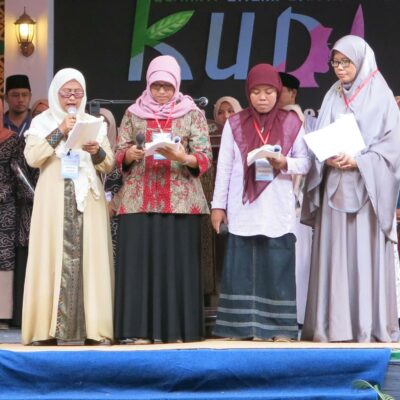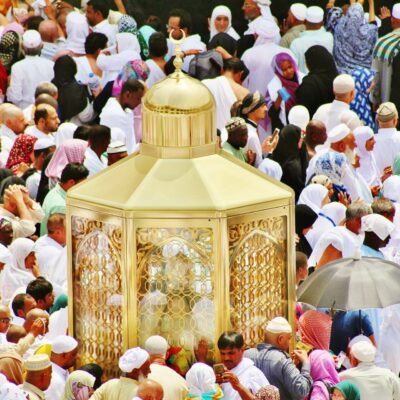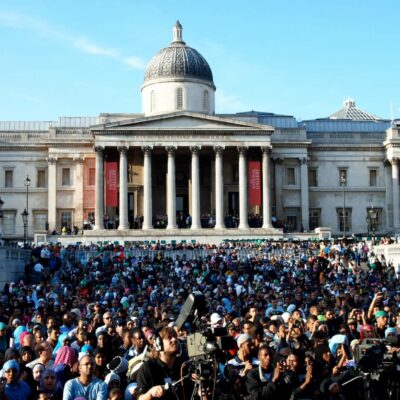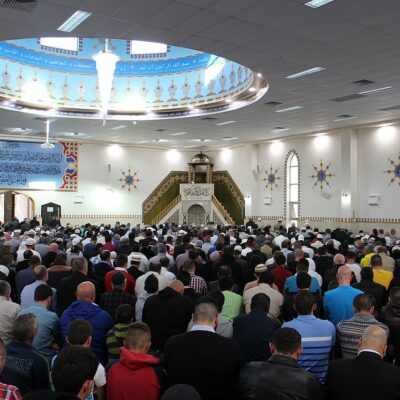Malaysia is often depicted as a multi-religious, multi-ethnic and modern Muslim-majority country with Islam as the official religion of the Federation. The country’s political system is heavily influenced by an Islamic ethos due to a concerted Islamisation process that began in the 1970s and continues unabated. This provides challenges for the ongoing nation-building process and the peaceful maintenance of the social fabric of society.
In this article, we argue that the institutionalised form of Islam in Malaysia is based on a rigid Islamic brand adopted by the state that has contributed to the hyper-securitisation and hyper legislation of Muslims that also increasingly affects the country’s non-Muslims. The state’s narrow interpretation of the Islamic teachings not only erodes the heterogeneity of Islam and its practices, but also reinforces the ‘othering’ processes against those who do not fit into the state’s definition of a Muslim and simultaneously divides the society into Muslim versus non-Muslim.
Background
The federation of Malaysia was proclaimed in 1963 and today consists of 13 states and three federal territories. Malaysia continues to be a Muslim-majority country, with the share of Muslims slowly expanding and according to the Malaysian Population and Housing Census 2020 63.5 percent of Malaysia’s population professed the Islamic faith, 18.7 percent Buddhism, 9.1 percent Christianity, 6.1 percent Hinduism, 2.7 percent others (no religion or unknown).
While the country gained independence from Britain with a constitution broadly based on secular ideas, legal scholars have argued that Malaysia is not simply secular or an Islamic state, neither secular nor theocratic. At the heart of the debate is Article 3(1) of the Federal Constitution, which states that ‘Islam is the religion of the Federation; but other religions may be practised in peace and harmony’. This has provided both sides of the argument ample interpretive leeway to argue that Islam has primacy and acts as official state religion; as well as that the Malaysian constitution provides religious freedom protections to non-Muslims.
However, secularism as an ideology and state governance structure has been largely rejected politically with the secularism seen as a Western concept and anathema to the Malay-Muslim dominance of the political domain. Furthermore, Malaysia’s status as an Islamic state has been reiterated politically through a wide range of Islamisation projects and political rhetoric that resonates with the aspirations of the majority Malay-Muslim population. Malays in Malaysia are constitutionally defined as Muslims and cannot leave Islam. Additionally, Malaysia has a unique plural legal system in which only Muslims are subject to two legal systems, the civil and Islamic (Syariah) law. This system derives from British colonial times when the British stripped the Malay sultanates of their political and economic powers but allowed them to retain the administration of Islamic and traditional customs. This split the law-making and administration of these domains and has created a system in which Muslims in Malaysia are subject to a specific set of state laws that govern how they practice their religion. It has also provided the Sultan of each state and the federal religious authorities with the means to make law without any political (and elected) oversight. This is because of the colonial era provisions that the Sultan remains the head of Islam of their respective state, and they have a religious council and mufti to draft fatwas (religious rulings) that are then gazetted into law, thereby side-stepping the usual law-making process through the state and federal parliaments.
Thus, the Syariah system has expanded alongside the larger state Islamisation project (the institutionalisation, centralisation and codification of Islam by the Malaysian state) and taken over ever more aspects of Muslims’ and non-Muslims’ lives. Malaysia’s Islamisation project has been financed and supported by the state and at both a federal and state level has led to an institutionalisation of Islamic legal and bureaucracy that increasingly polices the everyday lives of Malaysian Muslims. For example, religious enforcement agencies patrol parks, hotels and entertainment venues to seek out Muslims drinking alcohol or unmarried Muslim couples engaged in prohibited acts. Many state and civil institutions, including government, educational, and financial institutions are becoming part of this process thus expanding the reach of the Islamisation agenda as it permeates society.
Hyper-securitisation in a Malaysian context
Hyper-securitisation and hyper-legislation as theorised from a Western lens usually depicts Muslims as a minority that represents a threat to the status quo in need of preventative legal and criminal interventions. These interventions have singled out Muslims and have had negative impacts on integration, social cohesion and well-being. In Malaysia, on the other hand, a Muslim majority is subject to similar environment of hyper-securitisation and hyper-legislation. In this case the plurality and heterogeneity of Islamic theologies and praxis are seen a threat or danger by those in power. I (Gerhard Hoffstaedter) have argued that the majority Malays in Malaysia have represented themselves as the ‘owners of Islam in Malaysia’ and that the Malay elite use exclusion and othering practices that align with the hyper-securitisation and hyper-legislation agenda against Malays, and Muslims more broadly, to maintain their political hegemony. Scholar Angela Kuga Thas has further shown that othering the Malays and the politicisation of Islam were both ‘conquering tools’ devised by former long-serving Prime Minister Mahathir Mohamad in order to shore up support for his party. As we outline below, these political moves have, over time, created and bolstered several state organisations as well as changed the culture and practice of Islam in Malaysia into a much more coercive, exclusionist and closed form of Islam. This has also been influenced by the import of Wahhabi and Salafist ideas from the much more conservative form of Islam from the Middle East.
Inclusion and exclusion—drawing artificial boundaries
Malaysia’s dual parallel legal system that separates civil and Syariah law creates a dichotomy between Muslims and non-Muslims that codifies this division and exclusion. Muslim Malaysians have no choice but to be governed by the Syariah systems in matters of religion, family and personal affairs as well as some criminal offences. Moreover, a Muslim Malaysian is easily identifiable as such because the word ‘Islam’ appears on their national identity card—a change made in 2000 intended to make it easier to police Muslims.
In 1988 the government amended Article 121 (1A) of the Federal Constitution to the effect that the civil courts ‘shall have no jurisdiction in respect of any matter within the jurisdiction of the Syariah courts.’ This means that Syariah courts stand outside, and in effect above the civil courts, when any matter impinges on Islam or Islamic practices under its jurisdiction. This has caused a rift between Islam and other religions in Malaysia, especially on issues of apostasy, or attempts of Muslims to leave Islam. This separation of jurisdiction came into sharp focus in a 2007 landmark case, in which a Malay woman, Lina Joy, converted to Christianity and wanted to have Islam expunged from her identity card. She had converted to Catholicism and married a Catholic but was unable to gain a marriage license because Muslims are not allowed to marry non-Muslims in Malaysia. Her attempt to remove Islam from her national identity card failed when the highest-level Federal Court ruled that it had no jurisdiction to deal with apostasy issues as it was a matter under the Syariah law. The dissenting judge in Lina Joy’s case pointed out that by retaining the unresolved status quo between civil and Syariah jurisdiction, the courts were sending her back to face the Syariah court in which she would have to incriminate herself. This has fuelled the sense that Muslims have no legal recourse on any matter pertaining to Islam, as they can neither leave Islam nor evade Syariah law.
The religious authorities also use their powers to ensure a strict adherence to the state’s narrow Islamic interpretation of Sunni Islam. They achieve this by excluding a range of leaders and sects by declaring them deviant, seizing their assets and punishing anyone they deem transgressing their views. Scholar Maznah Mohamad has drawn attention to 45 religious Muslim groups that were declared deviant and prohibited by the federal department for Islamic Development (JAKIM) by 2012. The religious authorities have targeted Sufism, the mystical and spiritual tradition in Islam and their followers as well as the Ahmadiyya group which is considered kafir (disbeliever) and murtad (apostate) in a range of fatwas issued in the state of Selangor in 1953, 1998, and 2000. In addition, the prominent group Sisters in Islam, which advocates for women’s rights, was declared deviant by the Selangor Islamic Religious Council in July 2014 for promoting ‘liberalism and religious pluralism’. There have also been unsolved enforced disappearances of several religious figures and an investigation by the Human Rights Commission of Malaysia (SUHAKAM) found that enforced disappearances involved agents of the state, specifically the Royal Malaysian Police. This has caused fear in the community, especially among Muslims involved in what the state defines as deviant teachings or non-Muslims working with Muslims where they could be deemed to be proselytising.
Scapegoating minorities
The marginalisation of some Muslims is not only based on their beliefs, but also other matters such as their sexuality. Some Malaysian politicians simply deny the existence of homosexuality and gay people in Malaysia, but Malaysian authorities have sought to scapegoat, demonise and criminalise the LGBTQ+ (lesbian, gay, bisexual, transgender and queer) community in Malaysia and this has been codified in both the civil and Syariah laws. While the state sees LGBT+ as part of a foreign agenda in general, Muslims in Malaysia are scrutinised by the religious authorities through raids on venues where homosexual activity is suspected of taking place and arrests of those involved, as well as publicising their so-called ‘re-education’ programmes which aim to change individuals’ sexual orientation or gender identity. For example, the sharia enactments across all states and territories in Malaysia ban cross-dressing and almost all states and territories criminalise same-sex relations with fines and imprisonment. In September 2018, two women were caned in the state of Terengganu after they pleaded guilty to a charge relating to sexual relations between women (musahaqah). In November 2019, 11 men were charged under Selangor Syariah laws for attempting gay sexual acts. Punishment for such offences are usually accompanied by a mandatory conversion therapy programme called ‘mukhayyam’ specifically for LGBTQ+ Muslims with over 1,700 people sent to a ‘re-education’ camp between 2011 and 2022. The camps include religious psychotherapy sessions to guide the participants to ‘the right path’ of being a Muslim as well as activities designed to ‘toughen up’ effeminate men and transgender women through physical activities. For those willing to ‘change’, JAKIM created a smart phone application called ‘Hijrah Diri – Homoseksualiti’ with relevant resources regarding their Islamic perspective on LGBTQ+ and an e-book of a formerly gay person who quit their homosexual behaviour. The app which was created in 2016 was removed from Google Play in March 2022 due to violating the platform’s guidelines. This was after JAKIM promoted the app on its official Twitter account which attracted backlash from activists, who argued that while many countries have outlawed conversion therapy, Malaysia is still demonising the LGBT+ community to gain political support of conservatives.
Figure 1 (supplied by authors): Twitter post screenshot of JAKIM promoting the application on 9 March 2022
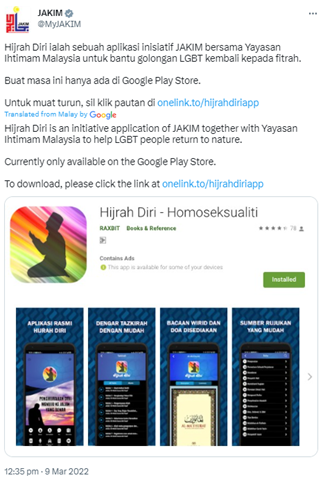
Policing morality and the everyday
Although Islamic systems and laws are only intended to apply to Muslims, in reality, non-Muslims are also affected when it comes to how their interactions with Muslims are policed. The state often prescribes how Muslims should conduct and behave themselves so that they do not breach Islamic rulings. The National Fatwa Committee for Islamic Religious Affairs during its 68th muzakarah (discussion) on April 12, 2005 issued ‘Guidelines for Muslims Celebrating Religious Festivals of Non-Muslims’. It provides a guide for Muslims who attend non-Muslim festivals and government agencies that organise celebrations involving Muslims and non-Muslims. The guidelines point out that simple acts, such as praising other religions, acting to respect other religions, putting up a Christmas tree or wearing a Santa Clause costume are all deemed to be contrary to the Islamic faith. Any event organised must also not ‘offend Muslim sensitivities’, such as singing songs that could proselytise for other religions. In February 2023, the Johor Islamic Department issued a fatwa prohibiting Muslims in the state from attending and participating in other faiths’ religious rituals. The fatwa was approved and justified by the Sultan as the head of Islam in the state and the Islamic council reminded the public of the legal repercussions of not abiding by the guidelines: Section 9 stipulates a fine of up to 3,000 ringgit (approximately half the median monthly wage in Malaysia) and imprisonment for up to two years for anyone who ‘defies, disobeys or disputes the orders of directions’ of the Sultan, religious council, and the mufti.
The state and its religious authorities see non-Muslims as a threat, especially those with a strong religious affiliation, and try to minimise contact between them. For example, interfaith dialogue has for a long time been a source of friction for Malaysian Muslim leaders as they have not wanted Muslims to participate or engage in interfaith activities because Islam is generally deemed to be superior to other faiths. Recently, a government-affiliated organisation called Impact Malaysia, caused an uproar with their effort to enable youths to visit different places of worship, particularly a church. Some politicians claimed that the programme targeted Muslim youths to ‘lure them to churches’. To counter this, the Selangor religious affairs minister stated that such programmes should not be joined by Muslims because they contravened the Non-Islamic Religions (Control of Propagation Amongst Muslims) Enactment 1988 which prohibits the proselytising of Muslims.
Conclusion
The state Islamisation project has been ongoing for several decades and has profoundly shaped Malaysia’s nation-building process. The institutionalised form of Malaysian Islam has become a powerful tool to police society according to the government’s, and its religious authorities’, narrow interpretation of Islam. This has created a hyper-securitised environment for Muslims in which Muslims’ heterogenous identities and practices are reduced to a homogenous Sunni Islam dictated by the state. The state religious authorities have thus become the ultimate arbiters of authority over every aspect of Islam. They can include and exclude anyone based on their Islamic religious power and dogma that cannot be challenged. Although the state justifies its policies by arguing they only govern Muslims, non-Muslims are also impacted because both groups form part of the community and interact closely with each other in their daily lives. Consequently, the division between Muslims and non-Muslims widens and continues to threaten Malaysia’s delicate form of multiculturalism.
Authors: Associate Professor Gerhard Hoffstaedter and Aslam Abd Jalil.
Image: National Mosque, Malaysia. Credit: scottgun/Flickr.

